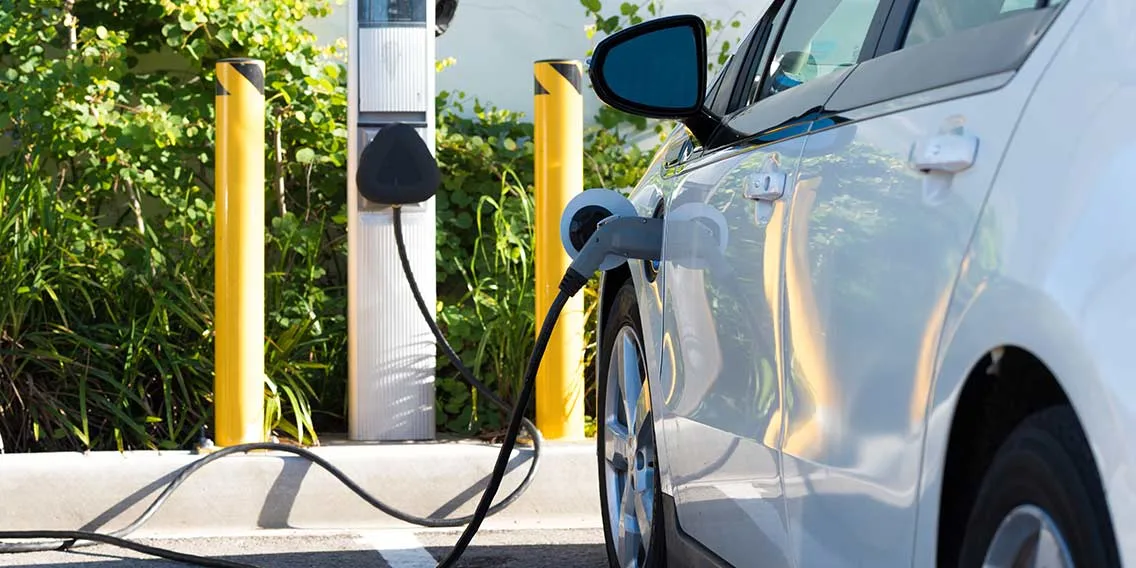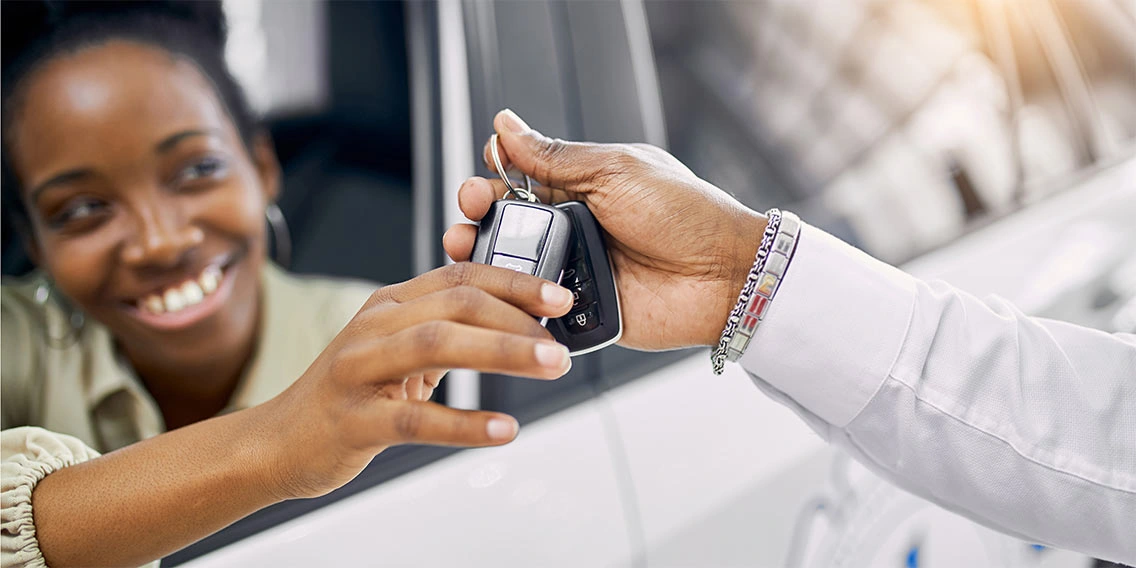AUTO
7 Common Car Buying Mistakes to Avoid
What you'll learn: What to avoid when buying a car
EXPECTED READ TIME:4 MINUTES
Buying a car can be like preparing for a road trip — you need to research your route and find the best way to get to your destination. Making mistakes is inevitable, as there's a lot to consider, but awareness is key.
Common Car Buying Mistakes
Here are seven of the most common mistakes people tend to make when buying a car and expert insight on how you can avoid them.
1. Not Taking Advantage of Rebates or Certificates
Rebates and money-off certificates can accelerate your car buying savings, but do you know how to find them? Some manufacturers encourage their employees to readily hand these out. Talking to friends can be a quick, easy way to find a connection with access to these types of savings.
Navigating through manufacturer's websites or sites such as Kelley Blue Book can help you find monthly specials on certain models as well. You can also get in touch with dealerships to scout out available car rebates and lease incentives.
2. Overlooking Resale Value
From reliability to style, many factors may be on your mind as you shop for a car but thinking about resale value might not be so obvious to you. Resale value is how much money a car owner will likely get when selling or trading in a car.
Here are some factors that affect resale value:
- Condition, make, model, mileage, and age all weigh in when it comes to the resale value of a car, but a well-maintained car no older than three years should help you land your target price when you're ready to sell or trade.
- Brand recognition and how popular a vehicle is can also impact resale value, but these factors can shift, depending on consumer preferences, gas prices, and more.
When it's time to sell or trade in, remember to research the value of your car to ensure you get what your car is worth.
3. Neglecting to Buy a Car Online
Have you ever thought about buying a car online? During the pandemic in 2020, online car buying was, in some cases, the only way to purchase a car. Now, buying a car online is a great option to consider.
Online car buying websites play up the perks of the refined, online customer experience they offer — meaning no dealership, high-pressure sales associates, or commission-based motive. Plus, many of those sites offer new and used options, trade-in quotes, and more.
4. Forgetting About Deals Through Affiliated Groups and Credit Unions
Certain warehouse clubs, organizations, and credit unions have programs that offer generous member discounts on cars.
For example, affiliated groups such as AARP and Costco have resources and tools to set members up with the best car buying deals. Many credit unions also provide member-exclusive rebates for the purchase or lease of select vehicles.
5. Bypassing Nearly New Cars
Certain things are at their best when ever-so-slightly worn in (think shoes and jeans). This concept translates to nearly new cars too.
New cars lose around 20% of their value in the first year of ownership, whereas nearly new cars will have already lost some value during the first few months of use — meaning they'll have a lower price tag and will lose less value down the road.
Here's how nearly new cars are generally classified:
- Under three years of age and no more than 25,000 miles
- Only one previous owner or many have been used as a test model
- Lower mileage and less wear and tear
Another factor that makes nearly new cars so appealing is that you can shop for them at dealerships or online.
6. Overlooking Total Cost of Ownership (TCO)
Figuring in money for a tip is probably second nature when you're dining out at a restaurant. Likewise, try to make a habit of accounting for related expenses when shopping for a car.
Considering TCO helps buyers plan for longer-term expenses because the total cost of ownership goes beyond the purchase price of the car. TCO can include:
- Insurance, regular maintenance, as-needed repairs, fuel
- Financing (don't forget the down payment and interest)
- Optional features like an extended warranty or credit insurance
There are also potential fees to look out for:
- Dealership fee (if buying at a dealership)
- Destination fee (if your car has to be delivered from the manufacturer)
- Vehicle title and registration fees
- State and local sales taxes
- Documentation fee (required in some states for preparing paperwork)
7. Not Being Aware of Online Tools
The right tools can make almost any experience, including car buying, easier and even fun. Certain online tools can make you aware of your options, from vehicle preference to financing.
Here a few tools that can be helpful:
Vehicle Preference Quizzes: There are online car quizzes available to help you find the perfect vehicle based on your price range, family situation, and more. If you're unsure what you're looking for, this is a good place to start.
Loan Payment Calculators: Using a payment calculator will give you an estimate of how much your monthly payments will be based on your loan details. This is a great way to find out how much you can afford.
Car Buying Service: A car buying service can help you find the right new or used car. You decide what kind of car you're looking for, and the tool will locate the best matches near you. Some car buying services even offer special discounts.
Enjoy the Ride
After doing your research and using the most effective tools and resources to explore your options, finding your final destination — the best car for you — can be exciting and rewarding. Just remember to avoid those seven mistakes so you head in the right direction.
Looking for a New Ride?
Use the PenFed Car Buying Service powered by TrueCar to find your next car.




